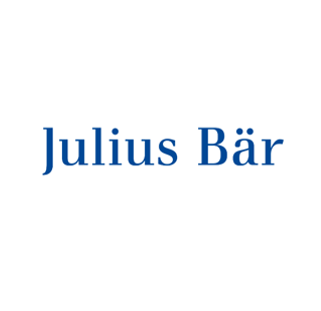Financial Results
Assets Under Management Rise Slightly At Julius Baer

Gains in markets and net inflows buoyed AuM to some extent although the fall in the dollar exchange rate against the Swiss franc took the shine off the figures.
Julius Baetr
said yesterday that its assets under management rose 1 per cent
from the start of 2023 to stand at SFr429 billion ($475.9
billion) at the end of April, driven by positive market
performance and net new money inflows. There was some negative
impact as the Swiss franc appreciated against the dollar – a
trend that accelerated in April.
The Zurich-listed bank which, once UBS fully takes over
Credit Suisse, will be the second-largest Swiss lender, said that
net new money “went off to a slow start at the beginning of
2023.” It was affected by clients having reduced their leverage,
although not as much as at the start of last year. However, net
inflows rose more recently, equating to SFr3.5 billion in net new
money by the end of April, or SFr5.2 billion if the effect of
deleveraging was accounted for. There were “solid contributions”
from clients domiciled in Asia (especially Hong Kong), Europe
(especially the UK and Ireland and Switzerland), the Middle East,
and Israel, it said.
The global banking sector has been hit by the failures and
rescues of Silicon Valley Bank, Signature Bank and First Republic
in the US, and the share price collapse of Credit Suisse and its
subsequent rescue by UBS at the behest of the Swiss federal
government. That transaction has upended the Swiss banking
marketplace, potentially causing banks' clients to review where
they put their money.
“The first four months of 2023 provided a challenging backdrop
for wealth managers, with uncertainties in particular areas of
the banking sector towards the end of the period, highlighting
the importance of Julius Baer’s outstanding financial strength,”
Julius Baer said in its results update yesterday. “Over the
period, the group’s capital position and balance sheet liquidity
were further reinforced from the already solid levels reported at
the end of 2022.”
Julius Baer said it had a gross margin for the first four months
of 2023 of just over 92 basis points (bp), slightly below the
close to 93 bp achieved in the second half of 2022, but running
well above the 87 bp attained in full year 2022. (The term refers
to a profitability measure that looks at a company's gross profit
compared with its revenue or sales.) The bank did not give a
specific financial figure for profit in its statement.
Compared with the second half of 2022, the rise in the gross
margin contribution from net commission and fee income, on the
back of somewhat higher client transaction activity, was balanced
by slightly lower contributions from net interest income as well
as net income from financial instruments measured at FVTPL [Fair
value through profit or loss], which was affected by a decline in
market volatility.
Following the further interest rate hikes since the beginning of
the year, the overall gross margin contribution from the revenue
components directly sensitive to interest rates grew
modestly.
The lender said its adjusted cost/income ratio was just over 66
per cent, largely unchanged from the 2022 financial year.